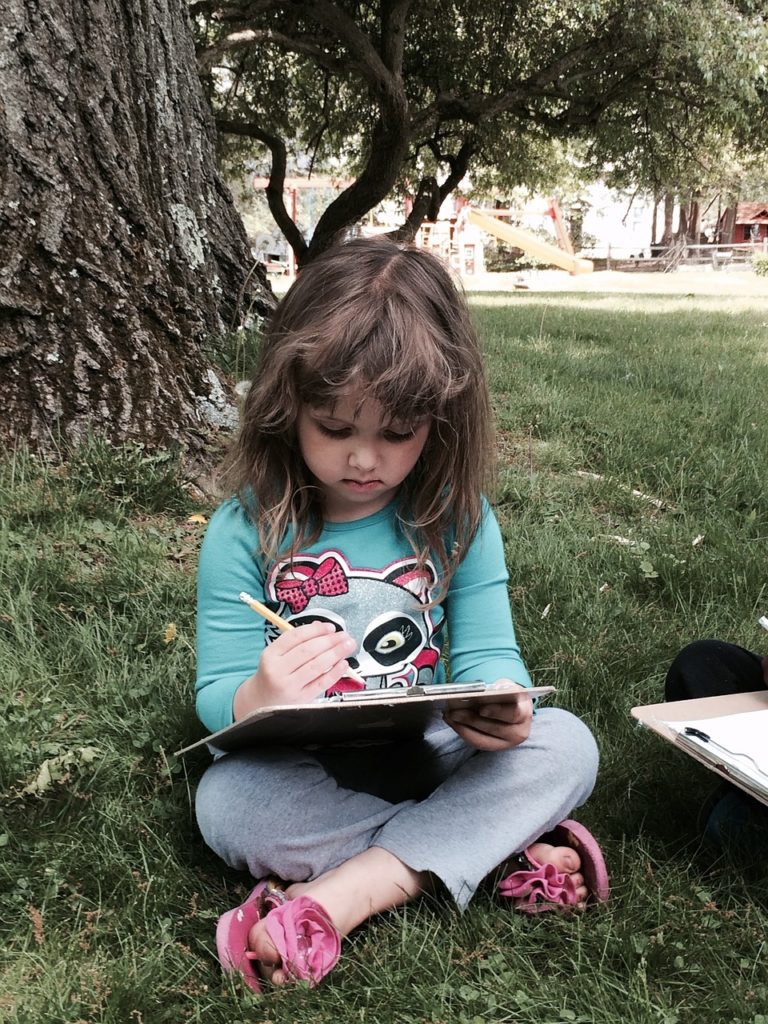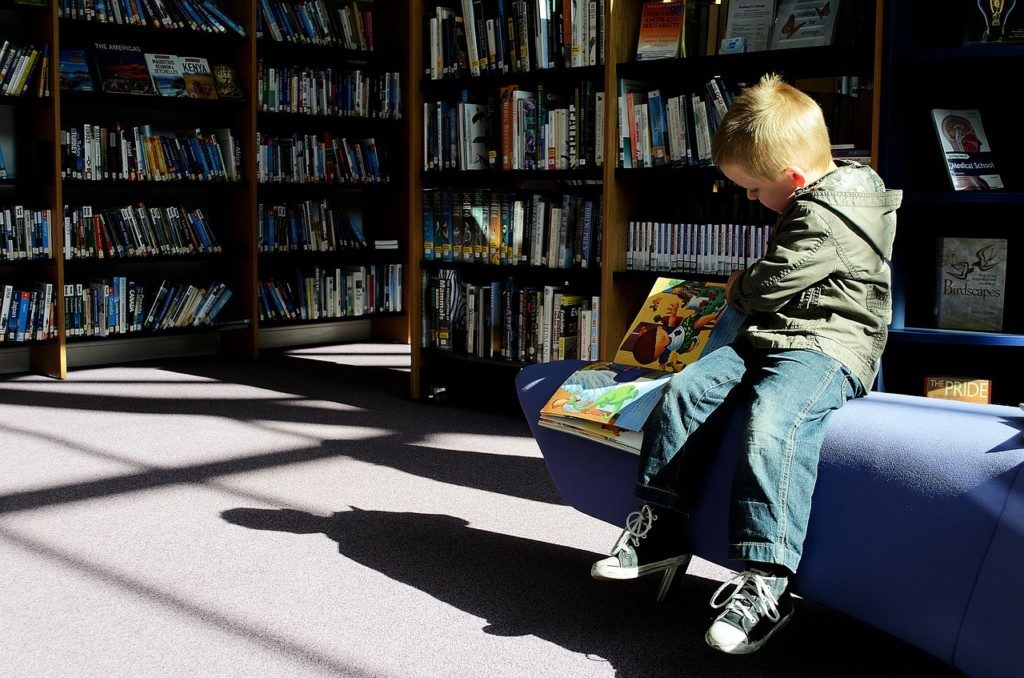Summer is closing in, y’all, and it’s so close we can taste it. We are itching to say goodbye to the nights of agenda signing, project finishing and dress up day planning, and hello to relaxed morning routines. Kids (and their beleaguered parents) look forward to the freedom and ease that come from hours of unstructured playtime and afternoons spent outdoors.
But (could you sense that but coming?) as a former teacher, I can assure you that the “summer backslide” isn’t the latest ride at Splash Country.
It is a real problem that can occur when kids lose academic progress after a summer spent away from school. I know many parents struggle to get their kids to listen to them in a teaching capacity or to be motivated to work on academic skills in a home setting. Starting with a few fun activities to reinforce skills learned during the year can go a long way toward keeping your kids in learning mode even as they are still able to relax and enjoy their summer.
Below are five of my favorite tips for skill reinforcement that don’t take much prep to implement and are easily adaptable to different ages:
1. READ!
Did you guess that this was going to be high on the list? Studies abound linking later academic and career success to a child’s exposure to books and their early literacy development. Especially during elementary school when children are developing their literacy skills, there is often a noticeable regression in reading scores from the end of one school year to the beginning of the next. To avoid this, kids need to be reading or being read to daily over the summer. Add in a family reading time during the afternoon when everyone is relaxing after lunch and morning activities. Model a love for reading by sitting down with your kids with your own book in hand and create conditions that encourage kids to look forward to this restful time. Let each kid pick a fun designated reading spot (the laundry room, under the kitchen table, the bottom of the linen closet) and cozy it up with pillows or stuffed animals. Plan weekly trips to the library for picking out books in their areas of interest. If you have a reluctant reader, help direct them to books about whatever subjects they are passionate about, even if that means finding a book on unlocking video game secrets! Whatever gets them to engage with the written word is a win.
2. Practice math skills with a pocketful of change at the ready for waiting situations.
Carrying some extra change is a great, open-ended way to sneak in some math skills whenever there is down time, such as waiting at a doctor’s office or at a restaurant. Little kids can sort coins by shape, size or color. Kids who are learning to count money can practice identification and skip counting. Older kids can be challenged with word problems, practice multiplication facts (seven nickels turn into 7 x 5 = 35), or even discuss fractions and percentages. It is an added bonus when younger kids are exposed to higher level math by being involved with an older sibling’s math problem. Plus, it keeps kids occupied while waiting AND can answer the age-old math student question: when will we ever use this in real life?
3. Keep a journal or write letters to family and friends.
Use a chalkboard or family memo board to post a prompt each day. Tailor expectations for the length of responses according to kids’ ages. Littlest kids can participate with just a picture or the attempt at sounding out one word. Older kids can come up with several sentences or paragraphs as their ability allows. There are so many examples of prompts to be found on Pinterest but get creative and use upcoming trips or events in your summer to personalize it for your kids. If the idea of writing in a journal seems pointless to them, you can offer the option of letter writing as an alternative. Encourage them to update out of town friends or family on their summer. Don’t worry too much about the technical aspect of the writing samples as kids will be less likely to want to participate if they feel it is going to be “graded.” Situations may arise that allow for some instruction (encouraging inventive spelling in younger kids, brainstorming how to expand content to the desired length by adding details, creating a final polished draft of a letter), but most importantly, kids will be reinforcing their ability to respond to a prompt (something they are asked to do in school A LOT these days).
4. Create a Bang! game with rotating objectives.
This was a favorite way to review skills when I taught elementary school. There are many variations and names of this game. It only requires a container with a lid of some sort and squares of card stock which contain skills children need to practice. These can be letters or numbers to identify, sight words, math facts, grammar concepts, periodic elements or anything kids need practice with memorizing or problem solving. In addition to the skill cards, five or so cards with the word “Bang!” are added to the mix. Players take turns pulling a card from the container without looking. If they can correctly solve the problem (or identify the letter or word as the case may be), they get to keep the card. If not, they must put it back. If they draw a “Bang!” card, they must put all of their collected cards back in the container. The person with the most cards at the end of the game wins. Have some fun decorating a few containers. I like using a cleaned out Pringles can and decorating it like a stick of dynamite to go along with the Bang! idea. I saw an example on Pinterest of a person using a container with a hinged lid, decorating it to look like a crocodile and calling the game Snap! Once the containers are made, the cards are easy to rotate and replace as needed. This is particularly helpful if you know there was a skill your child struggled with during the school year that you want to make sure they don’t lose ground on over the summer. It can help make practicing the skills feel less like drills and more like playing a game!
5. Let kids be bored.
The amount of open-ended free time is both the blessing and curse of summer. It can be wonderfully restful to slow down and have fewer places to be and, at the same time, somewhat alarming when you consider all the hours in all the days that must be filled. But resist the urge to try to fill them all yourself (or with technology). Letting kids have down time can leave space for creativity to flourish. They may need help brainstorming a list of available activities (outside play, reading, imaginative play, art projects, cooking experiments, etc.). Once this is in place, refer them to it whenever they complain of being bored. While this may not seem entirely academic, it is a skill that many kids need practice in and one which has been proven to foster creativity, which translates well to most all subject areas. Perhaps it will even help point them in the direction of new hobbies and passions!





















